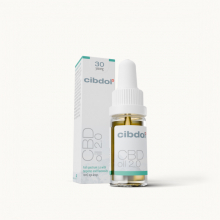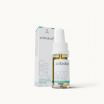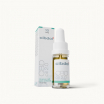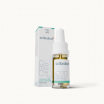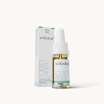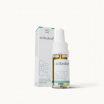How CBD Affects The Cytochrome P450 System
Published:
The cytochrome P450 system plays an important role in metabolizing many medications. CBD can interact with this system, potentially altering the effects of certain drugs. Understanding these interactions is key for safely using CBD alongside other medications.
Contents:
The cytochrome P450 system is a group of liver enzymes responsible for metabolizing drugs and other substances we ingest. There are over 50 different cytochrome P450 enzymes, each coded for by specific genes.
These enzymes break down medications and either activate or deactivate them through a process called oxidation. This affects how much of the drug enters your bloodstream and how long it stays in your body.
Some medications require activation by cytochrome P450 enzymes to become therapeutic. Others are broken down faster as a result of P450 metabolism. Genetic differences, drug interactions, and health status all influence P450 activity.
How does this relate to CBD? Research shows CBD can inhibit certain cytochrome P450 enzymes. Let’s explore how this works and what it means for using CBD with other drugs.

What Are The Effects of CBD on Cytochrome P450 Enzymes?
Studies have found CBD inhibits two cytochrome P450 enzymes in particular:
- CYP3A4
- CYP2D6
In one study, CBD slowed down CYP3A4 activity by more than 50%. It also significantly reduced CYP2D6 activity.
By inhibiting these enzymes, CBD can cause other medications processed by them to be metabolized more slowly. This leads to higher levels of the other drugs in your system for longer periods of time.
The degree of CYP450 enzyme inhibition varies based on the dose and frequency of CBD use. Higher doses taken regularly can result in up to 90% less activity of these enzymes.
Let’s take a closer look at how CBD affects each of these P450 enzymes.
CBD Effects on CYP3A4
CYP3A4 is responsible for metabolizing over 50% of clinical drugs. CBD is a potent CYP3A4 inhibitor, meaning it greatly reduces the enzyme’s ability to break down medications.
In one study of 10 adults, a high dose of CBD decreased CYP3A4 activity by 53%. Other research suggests this inhibition can be dose-dependent, with 20mg of CBD reducing CYP3A4 activity by 50%.
Through inhibiting CYP3A4, CBD can significantly increase blood concentrations of drugs metabolized by this enzyme. The higher drug levels and prolonged effects should be considered when combining CBD with CYP3A4 substrates.
CBD Effects on CYP2D6
While less pronounced than its effects on CYP3A4, CBD also inhibits the CYP2D6 enzyme.
In human liver microsomes, CBD reduced CYP2D6 activity in a dose-dependent manner by up to 61%. This indicates a moderate potential for drug interactions.
However, the clinical significance of CYP2D6 inhibition by CBD is likely limited. Studies found blood concentrations of CYP2D6 substrates were generally unaffected by concomitant CBD administration.
Still, individuals taking high doses of CBD with CYP2D6 medications should monitor for increased side effects or toxicity. Those with CYP2D6 genetic polymorphisms may be more susceptible to interactions.
CBD Can Affect Metabolism of Many Medications
By inhibiting CYP3A4 and CYP2D6, CBD can potentially alter the pharmacokinetics of a long list of medications. Any drug metabolized by these enzymes could interact with CBD.
Some of the most notable interactions are with:
- Benzodiazepines: CBD can increase sedative effects of drugs like diazepam and alprazolam.
- Antiarrhythmics: CBD may cause higher levels of antiarrhythmics like amiodarone.
- Anticonvulsants: CBD can raise blood concentrations of phenytoin, rufinamide, and other antiseizure medications.
- Immunosuppressants: CBD may lead to increased cyclosporine levels requiring dose reductions.
- Beta blockers: Increased side effects can occur when CBD is taken with propranolol or metoprolol.
- Antidepressants: CBD may heighten concentrations of SSRIs and MAOIs leading to enhanced effects and side effects.
- Antipsychotics: CBD may increase levels of medications like haloperidol potentially causing toxicity.
- Opioids: Morphine, codeine, oxycodone and other opioids may have prolonged sedative effects when combined with CBD.
CBD also inhibits CYP1A1, CYP1A2, CYP1B1 and CYP2C19, but to a lesser degree. Drugs metabolized by these enzymes may still be affected, but the interactions are likely minimal.
Importantly, CBD has little impact on CYP2C9 enzymes. Therefore, CBD is unlikely to alter metabolism of warfarin and certain diabetes medications.
Let’s take a closer look at some of the most significant medication interactions with CBD.
Notable CBD-Drug Interactions
There are several notable interactions between CBD and common medications. We’ll explore some of the major ones so you can understand the risks and properly manage these interactions.
Blood Thinners
CBD’s interaction with the anticoagulant warfarin is one of the most studied. Warfarin is metabolized by CYP2C9 enzymes which are minimally impacted by CBD.
Several studies confirm CBD has little effect on warfarin metabolism or anticoagulation activity. One found CBD did not alter warfarin levels or change INR values, an indicator of blood clotting ability, in patients taking warfarin.
However, CBD could theoretically increase warfarin levels by competing for binding sites in the body. Those on warfarin should use caution, start with low CBD doses, and monitor INR closely when starting CBD.
Benzodiazepines
Benzodiazepines like diazepam (Valium) and alprazolam (Xanax) are used for anxiety, insomnia, seizures and muscle spasms. These drugs are metabolized by CYP3A4 and CYP2D6 enzymes which are inhibited by CBD, causing significant drug interactions.
Studies confirm CBD can dramatically increase blood levels of diazepam, triazolam and other benzodiazepines.
In 12 healthy adults, a CBD dose of 600mg increased diazepam concentrations by over 200% and prolonged sedation compared to diazepam alone. Another study found a 167% increase in alprazolam levels after CBD exposure.
The enhanced sedative effects increase risks of excessive sleepiness, breathing problems and overdose. Benzodiazepine doses should be reduced when adding CBD.
Antidepressants
Many antidepressants including selective serotonin reuptake inhibitors (SSRIs), serotonin-norepinephrine reuptake inhibitors (SNRIs), tricyclic antidepressants (TCAs) and monoamine oxidase inhibitors (MAOIs) interact with CYP450 enzymes.
Studies show CBD can increase levels of several of these medications by inhibiting CYP3A4 and CYP2D6. This leads to enhanced antidepressant effects that may require adjusting medication dosage.
Those taking high CBD doses with antidepressants should monitor for increased side effects like drowsiness, anxiety, dry mouth, blurred vision and restless legs syndrome. Seek medical advice if these occur.
Antiepileptics
CBD is also known to interact with several antiepileptic drugs (AEDs) including clobazam, rufinamide, topiramate and zonisamide.
These interactions involve the CYP450 system. CBD inhibits the enzymes needed to metabolize certain AEDs, causing higher medication levels in the bloodstream.
In studies of the anticonvulsant clobazam combined with CBD, clobazam levels increased by 60-80% in adults and over 100% in children due to CBD interactions.
Another study found a 36% increase in rufinamide plasma concentrations when coadministered with CBD. Increased drug levels can lead to more side effects or toxicity.
Those on AEDs should use caution when adding CBD. Starting with low doses and monitoring blood levels can help minimize interactions.
Chemotherapy Agents
Chemotherapy medications are largely metabolized by CYP3A enzymes. In vitro studies show CBD may increase blood concentrations of certain chemo drugs by inhibiting CYP3A4.
Taxanes like docetaxel are one class of chemo agents that may have heightened effects when combined with cannabidiol. The interaction could lead to higher toxicity without adjusting dosage.
Animal studies also indicate CBD may enhance the effects of doxorubicin and paclitaxel, used for various cancers. More research is still needed to confirm chemo interactions in humans.
Genetic Mutations Can Increase Risks
Genetic polymorphisms that cause reduced CYP450 enzyme activity can increase the risk of CBD drug interactions. Those with these mutations already have higher medication levels without CBD.
For example, 7-10% of Caucasians have a genetic CYP2D6 deficiency. For these patients, CYP2D6 substrates like antidepressants and antipsychotics are not adequately metabolized. Adding CBD could compound the problem and lead to adverse events.
Genetic testing can identify patients with CYP450 mutations. However, routine screening is not typically done unless excessive drug levels or side effects are observed. CBD users concerned about interactions may consider requesting these tests.
How to Manage CBD-Drug Interactions
While potentially significant, many CBD-drug interactions can be managed with proper precautions:
- Talk to your doctor - Discuss adding CBD with your physician, especially if you take medications affected by CYP450 enzymes. They can guide safe CBD use.
- Start low, go slow - Begin with low CBD doses of 5-10mg twice daily and gradually increase every 3-4 weeks if needed. This allows the body to adapt and minimizes risks.
- Monitor for changes - Be alert to changes in medication effects. Keep track of side effects and report any changes to your doctor. They may need to adjust prescriptions.
- Avoid sustained high doses - Single low CBD doses are less likely to inhibit CYP450 enzymes than daily high doses of 150mg or more. Lower doses minimize interaction risks.
- Take 4+ hours apart - Separating CBD and medication doses by 4-6 hours allows more time for medications to metabolize before adding CBD. This helps reduce interactions.
- Consider alternatives - Opt for non-orally administered CBD products like topicals, vapes or patches that bypass first-pass metabolism and reduce CYP450 interactions.
Being an educated CBD consumer and working closely with your doctor allows you to use CBD safely with other medications. Always seek medical advice before combining CBD with any drug.
CBD and Cytochrome P450 Interactions
- CBD can inhibit CYP3A4 and CYP2D6, the enzymes that metabolize many common medications.
- By slowing metabolism of other drugs, CBD can cause them to remain in your system at higher levels for longer.
- Higher blood concentrations of medications may lead to increased pharmacological effects and side effects.
- CBD interactions are most notable with benzodiazepines, antidepressants, antiepileptics, chemotherapeutic agents and other drugs metabolized by CYP450 enzymes.
- Those taking high CBD doses with affected medications should monitor closely for toxicity and adjust dosages accordingly under medical supervision.
- Genetic differences in metabolizing enzymes increase risks of CBD interactions.
- Starting with low CBD doses, taking 4+ hours apart from other medications and using alternative CBD formats can help minimize interactions.
Always talk to your doctor about potential CBD drug interactions before use and work together closely to find the safest dosage. Being an informed consumer is key to safely incorporating CBD into your health regimen alongside other medications.
What are cytochrome P450 enzymes?
Cytochrome P450 enzymes are proteins found in your liver that help break down toxins and medications. There are over 50 different types of these enzymes, each coded by specific genes. They metabolize substances in your body through a process called oxidation.
Why do cytochrome P450 enzymes matter when taking CBD?
Research shows CBD can inhibit certain cytochrome P450 enzymes, particularly CYP3A4 and CYP2D6. This reduces their ability to break down other medications, causing higher levels of those drugs to remain in your system. The prolonged effects need to be monitored closely.
What medications are most affected by CBD’s interaction with P450 enzymes?
Some notable medications impacted include benzodiazepines, SSRIs, tricyclic antidepressants, antipsychotics, beta blockers, anticonvulsants, immunosuppressants and opioids. CBD may increase side effects or toxicity risks of these drugs by slowing their metabolism.
Are all cytochrome P450 enzymes inhibited by CBD?
No. While CBD inhibits CYP3A4 and CYP2D6 most significantly, it has less effect on CYP1A1, CYP1A2, CYP1B1 and CYP2C19. It does not inhibit CYP2C9 which is involved in metabolizing warfarin and certain diabetic medications.
Can genetic factors increase risks of CBD interactions with medications?
Yes. Genetic polymorphisms that cause reduced CYP450 enzyme function can increase interaction potential. Those with these mutations already have higher medication levels, so adding CBD can compound this effect.
How can I prevent issues from CBD inhibiting my medication’s metabolism?
Start with low CBD doses taken 4+ hours apart from medications. Monitor for increased side effects and discuss any changes with your doctor. They may need to adjust medication dosages. Avoid sustained high doses of CBD when on affected medications.
Is it safe to take CBD with all prescription drugs?
No. You should always discuss adding CBD with your physician if you take any medications, especially those metabolized by CYP450 enzymes. They can guide proper dosing and monitor for potential interactions. Do not start CBD without medical consultation.
What side effects might indicate my medication level is increased due to CBD?
Excessive drowsiness, changes in appetite and mood, blurred vision, dry mouth, breathing problems, nausea, restless legs or other new side effects could signal elevated medication levels from CBD interactions. Seek medical help if these occur.
What should I do if I experience increased medication side effects after starting CBD?
Notify your doctor immediately so they can check your medication blood levels. They may advise you to stop CBD use or reduce your medication dosage to counteract the interaction effects. Closely monitor side effects and follow medical guidance.
Are topical CBD products safer than oral CBD when it comes to drug interactions?
Potentially. Topicals, vapes and other non-oral CBD options bypass the liver and first-pass metabolism. This can help minimize CBD interactions with medications metabolized by cytochrome P450 enzymes compared to oral tinctures or capsules.
Summary
The cytochrome P450 system is a group of liver enzymes that metabolize medications and other substances in our bodies. There are over 50 different cytochrome P450 enzymes, each encoded by specific genes. These enzymes break down drugs through oxidation, which affects how much enters the bloodstream and how long it stays in the body. Some medications require activation by P450 enzymes, while others are broken down faster. CBD can inhibit certain cytochrome P450 enzymes, particularly CYP3A4 and CYP2D6. By inhibiting these enzymes, CBD causes other medications metabolized by them to break down more slowly, leading to higher drug levels and prolonged effects. This has been shown in studies with medications like benzodiazepines, antidepressants, anticonvulsants, and others. The degree of interaction depends on CBD dose. Those on affected medications should use caution when adding CBD, starting with low doses and monitoring side effects closely. Genetic differences in metabolizing enzymes also increase potential CBD drug interactions for some. However, risks can be managed under medical supervision by adjusting medication dosages accordingly if needed.









